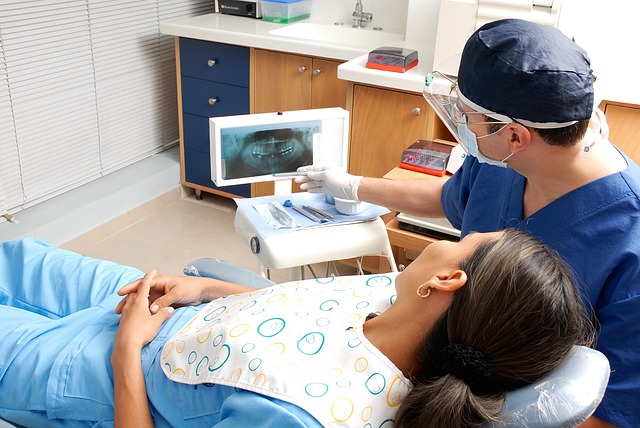Senior-Friendly Dental Care in the United States 2026
Dental care needs evolve as Americans age, requiring adjustments in treatment and accessibility for seniors. Recognizing age-related oral challenges, many dental providers in the United States address these with specialized knowledge and facilities to support older adults’ oral and overall health.

Importance of Specialized Dental Care for Seniors
Oral health remains crucial to overall well-being, particularly for adults aged 65 and older. As people age, changes in saliva production, gum health, and tooth integrity affect oral function. Common issues include dry mouth caused by medications, gum recession, increased risk of root decay, and the need for denture maintenance. Additionally, oral infections can contribute to systemic health problems such as cardiovascular disease, diabetes complications, and respiratory infections. This underscores the importance of tailored dental care strategies that consider both oral and general health in senior populations.
Characteristics of Senior-Friendly Dental Providers
Dentists serving older adults effectively combine clinical expertise with understanding specific age-related needs. Key attributes often include:
Accessibility
Senior-friendly dental practices prioritize physical accessibility. Features can include wheelchair-accessible entrances, ramps, wider doors to accommodate mobility devices, elevators where necessary, and dental chairs designed for easier patient transfer. Accessibility also encompasses flexible scheduling to allow longer appointment times, recognizing mobility limitations and the need for extra care.
Adapted Communication and Patient Comfort
Dental professionals working with seniors often adopt slower, clearer communication methods, ensuring patients understand procedures and care instructions. This can be important when cognitive impairments or hearing loss are factors. Creating a calm, patient-centered environment helps reduce anxiety and improve cooperation during treatment.
Comprehensive Geriatric Oral Healthcare Services
Senior-focused dental practices provide services that specifically address common oral conditions in older adults. These services may include:
- Periodontal disease management adapted for weakened immune responses
- Prosthodontics including denture fitting and repair
- Oral cancer screenings, increasingly relevant with age
- Management of xerostomia (dry mouth) and its effects
- Treatment of root caries and tooth wear common in aging dentition
Coordination with Medical Providers
Given the complex health profiles of many seniors, dental providers often coordinate care with primary physicians, pharmacists, and specialists to assess medication side effects and manage systemic risks related to oral treatments.
Mobile and In-Home Dental Care Options
For seniors with mobility difficulties, transportation challenges can limit access to dental offices. In response, some regions in the United States offer mobile dental services where providers visit patients’ homes, assisted living facilities, or nursing homes. These services typically include routine exams, cleanings, denture care, and some restorative procedures.
Mobile dental care aims to overcome barriers related to transportation, physical limitations, and safety concerns. While availability varies, such services represent an important component of oral healthcare access for elderly individuals unable to attend traditional dental offices.
Advances in Dental Technology Relevant to Seniors
Technological developments have enhanced the ability to provide comfortable and effective dental care for seniors, including:
- Digital imaging and intraoral cameras that reduce exam discomfort and improve diagnostic accuracy
- Computer-aided design and manufacturing (CAD/CAM) methods allow quicker production of dental prostheses
- Laser dentistry offers minimally invasive treatment options with less pain and faster healing
- Sedation dentistry tailored to older patients to manage dental anxiety and procedural tolerance
These innovations aim to improve patient experiences and clinical outcomes amid age-related sensitivities.
Impact of Oral Health on Overall Health in Seniors
Research has established connections between oral health conditions and systemic diseases common in older adults:
- Periodontal disease has been correlated with increased risk of cardiovascular disease and poorer diabetes control
- Poor oral hygiene has been linked to respiratory infections such as pneumonia, especially among nursing home residents
- Malnutrition risks rise when dental pain or tooth loss impair chewing ability
This evidence supports integrated care approaches emphasizing the importance of oral health monitoring as part of comprehensive senior health management.
Insurance and Payment Considerations in United States
Dental coverage for seniors often differs from general populations. Many Medicare plans do not include routine dental benefits, making private dental insurance or supplemental plans important for cost management. Medicaid offers dental coverage in some states but eligibility and benefits vary widely.
Understanding insurance options, out-of-pocket responsibilities, and available community resources can help seniors plan for dental care expenses effectively.
Typical Costs in United States (2026)
Typical price ranges for common dental care services for seniors in the United States include:
- Basic services: Routine dental exams and cleanings typically range from $75 to $200 per visit. These services include oral health screenings and preventive care.
- Standard restorative treatments: Procedures such as fillings, simple extractions, and denture adjustments generally cost between $150 and $600 depending on complexity.
- Premium care options: Advanced restorative procedures including implants, crowns, or complex periodontal therapy can range from $1,000 to $4,000 or more per treatment.
Costs may vary based on geographic location, provider, and specific patient needs. Seniors are encouraged to verify details with their dental offices and insurance plans.
Maintaining Oral Health in Senior Years
Beyond professional dental care, maintaining good oral hygiene at home remains essential. Recommendations include:
- Brushing at least twice daily with fluoride toothpaste
- Daily flossing or use of interdental cleaners as appropriate
- Staying hydrated to reduce dry mouth risks
- Routine oral self-examinations to detect abnormalities promptly
Additionally, managing dietary factors such as limiting sugary snacks and staying mindful of medication side effects supports oral health.
Conclusion
As the senior population in the United States grows, the need for dental care tailored to older adults’ unique oral health needs continues to increase. Understanding the qualities of senior-friendly dental providers, available care options including mobile dentistry, advances in technology, and insurance considerations assists elderly individuals and caregivers in navigating oral healthcare decisions in 2026 and beyond.




